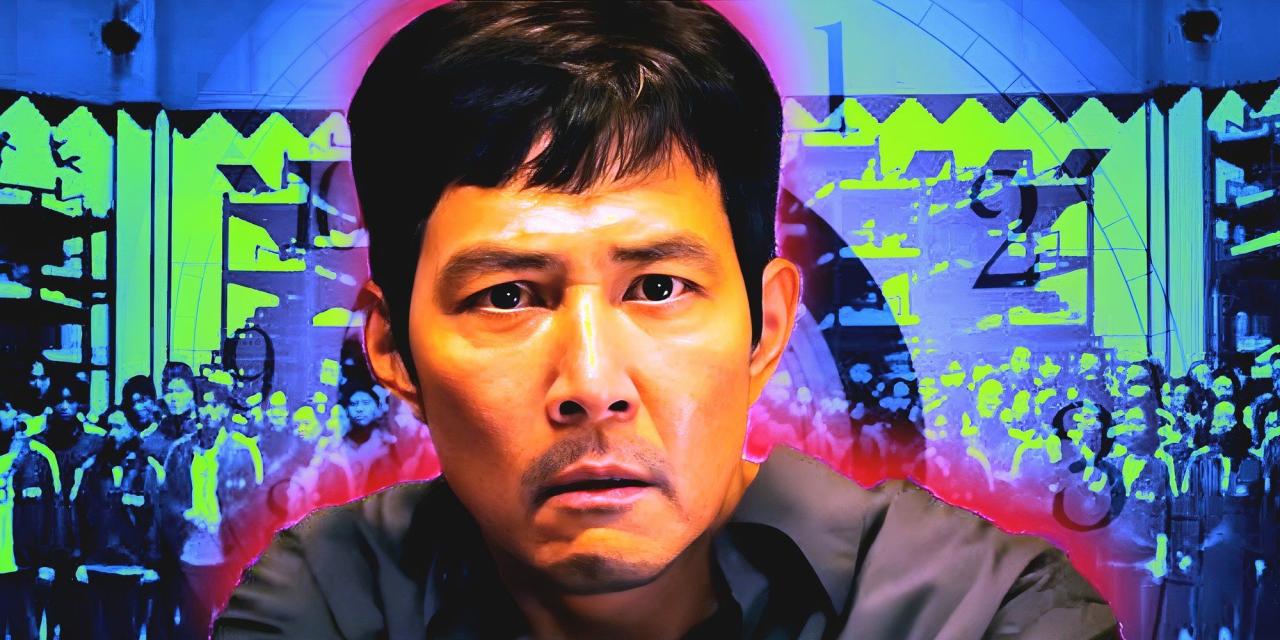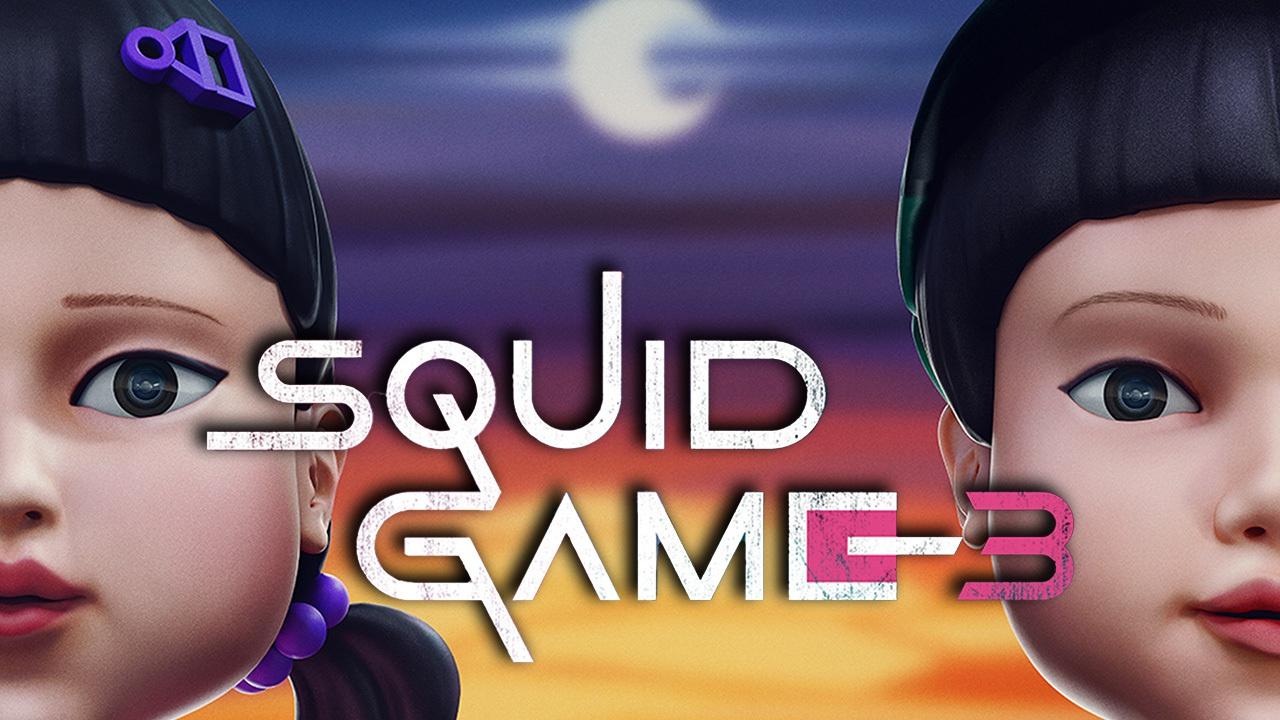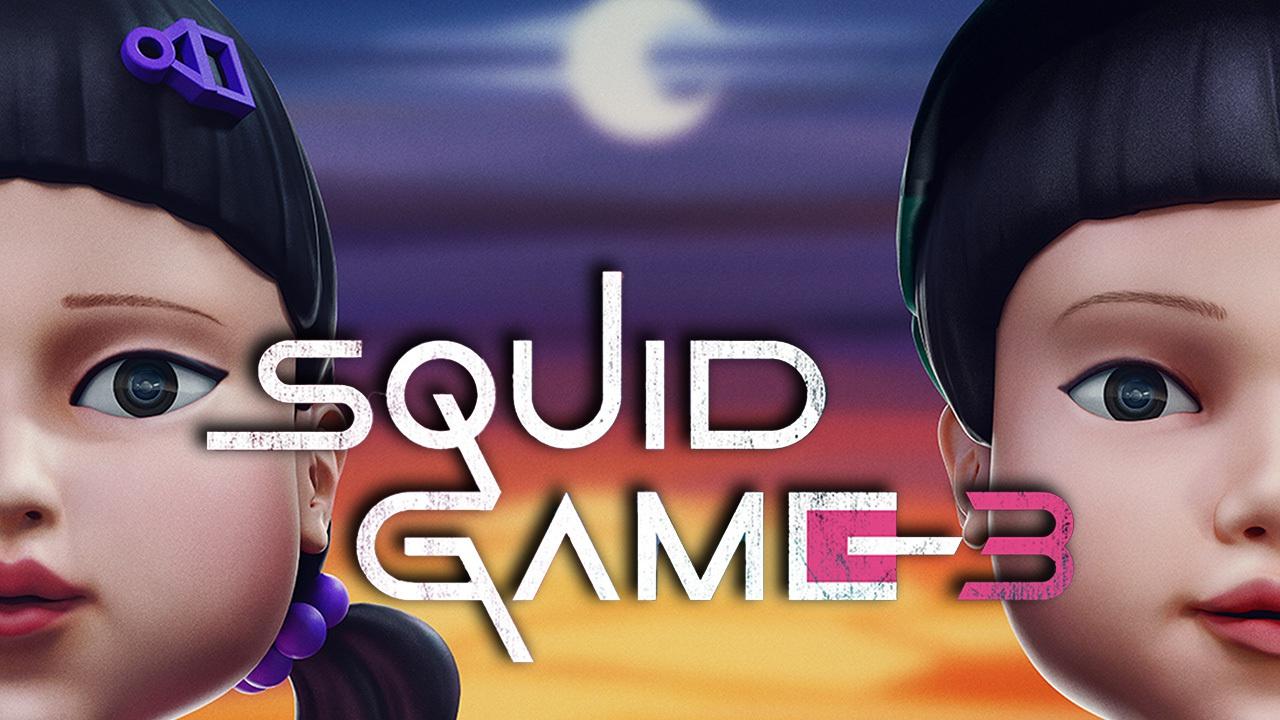Squid Game Histoire Vraie? Is the wildly popular Netflix series a reflection of harsh realities in South Korea, or purely fictional entertainment? This exploration delves into the socio-economic conditions that might have inspired the show’s brutal games and desperate characters. We’ll examine the parallels between the show’s depiction of debt, inequality, and desperation with the actual struggles faced by many in South Korea.
Prepare to question the line between reality and the gripping drama of Squid Game.
We’ll look at real-life examples of debt crises and their impact, comparing the games in the show to traditional Korean children’s games. We’ll also analyze the psychological impact of the games on the players, the ethical dilemmas they face, and the show’s surprisingly significant global impact and cultural reception. Get ready for a deep dive into the fascinating—and sometimes disturbing—world behind the hit series.
The Inspiration Behind “Squid Game”: Real-World Parallels in South Korea
The dystopian world of “Squid Game” isn’t entirely fictional; its grim reality is rooted in the socio-economic landscape of South Korea. The show’s themes of extreme debt, desperation, and social inequality reflect real-life struggles faced by many South Koreans.
Socio-Economic Conditions in South Korea
South Korea’s rapid economic growth has been accompanied by significant income inequality. A large gap exists between the wealthy elite and a substantial portion of the population struggling with high levels of personal debt. Intense pressure to succeed academically and professionally, coupled with a competitive job market, contributes to widespread stress and anxiety. This societal pressure, combined with the high cost of living, particularly in major cities, creates a breeding ground for the desperation depicted in the series.
Real-Life Examples of Debt Crises
Numerous instances of debt-related crises in South Korea highlight the show’s realism. The 1997-98 Asian financial crisis had a devastating impact on many families, leading to widespread bankruptcies and economic hardship. Even today, high household debt levels remain a significant concern, pushing individuals to the brink of financial ruin. Stories of individuals resorting to extreme measures to repay debts are not uncommon, mirroring the desperation of the “Squid Game” contestants.
Comparison of Games: Traditional and Depicted
The children’s games featured in “Squid Game,” while presented in a deadly context, are based on actual traditional Korean games. This juxtaposition of innocent childhood memories with life-or-death stakes amplifies the show’s unsettling effect.
| Squid Game Game | Real-World Counterpart | Description | Cultural Significance |
|---|---|---|---|
| Red Light, Green Light | 무궁화 꽃이 피었습니다 (Mugunghwa kkochi pieotseumnida) | A game where players advance while a “leader” is not looking. | A common childhood game, symbolizing childhood innocence. |
| Ddakji | Ddakji (딱지) | A traditional Korean game involving flipping paper tiles. | Often played by children, representing simple games of chance. |
| Marbles | 구슬치기 (Guseulchigi) | A game of skill and strategy involving marbles. | A classic children’s game, associated with friendship and competition. |
Debt and Economic Inequality in South Korea: A Factual Overview

Understanding the economic realities of South Korea is crucial to interpreting the show’s message. Statistics on income disparity and debt levels paint a picture of a society grappling with significant economic challenges.
Statistics on Income Inequality and Debt
South Korea consistently ranks high in terms of income inequality among OECD countries. The Gini coefficient, a measure of income distribution, reflects a substantial gap between the rich and the poor. Similarly, household debt levels are among the highest globally, placing considerable strain on many families. Precise figures fluctuate, but readily available data from reputable sources like the OECD and the Bank of Korea illustrate the severity of the issue.
Challenges Faced by Low-Income Individuals
Low-income individuals and families in South Korea face numerous challenges in accessing essential resources and opportunities. These include limited access to affordable housing, healthcare, and education. The pressure to maintain a certain social standing, despite financial constraints, further exacerbates their struggles. The highly competitive job market makes it difficult to secure stable employment, trapping many in a cycle of poverty.
Social Safety Nets in South Korea
While South Korea has social safety nets, their effectiveness in addressing the needs of the most vulnerable populations is a subject of ongoing debate. Programs such as unemployment benefits and welfare assistance exist, but their coverage and adequacy are often questioned. Many individuals fall through the cracks, highlighting the need for more robust and comprehensive social support systems.
The Psychology of the Games: Human Behavior Under Pressure: Squid Game Histoire Vraie
The games in “Squid Game” are not merely violent spectacles; they serve as a chilling examination of human behavior under extreme pressure. The show explores the psychological impact of competition, desperation, and the erosion of morality in life-or-death situations.
Psychological Impact of Extreme Pressure

The intense pressure to survive pushes the players to their psychological limits. Decision-making becomes distorted, ethical considerations are overridden by the primal instinct for survival, and trust erodes as individuals prioritize self-preservation. This mirrors real-life scenarios where individuals under extreme stress make choices they would not normally make.
Motivations of the Players
The players’ motivations are complex and varied. While the lure of a massive cash prize is a primary driver, the underlying desperation stemming from crippling debt and a lack of opportunities is equally compelling. Their participation is a desperate gamble, a last resort in a system that has failed them. This desperation highlights the societal pressures that drive individuals to such extremes.
Ethical Dilemmas Faced by Players
The players continually face agonizing ethical dilemmas, forcing them to confront their moral compass. Cooperation versus betrayal, self-preservation versus altruism, and the weighing of individual survival against the potential well-being of others are central themes. These dilemmas resonate with real-life scenarios involving difficult choices between personal gain and moral responsibility.
Hypothetical Ethical Dilemma

Imagine a scenario where a group of individuals stranded on a remote island must choose one person to sacrifice for the survival of the others. This mirrors the difficult choices faced by the “Squid Game” contestants, forcing them to confront their own moral boundaries and the limits of human empathy under extreme pressure. The decision highlights the complexities of human nature when survival is at stake.
The Depiction of Violence and Brutality: A Critical Analysis
The graphic violence in “Squid Game” is a key element of its narrative and a significant point of discussion. The show doesn’t shy away from depicting the brutal consequences of the games, forcing viewers to confront the realities of violence and its impact.
Depiction of Violence and Consequences
- The show depicts violence in a visceral and unflinching manner, showcasing the physical and psychological trauma inflicted on the players.
- The consequences of violence are clearly shown, highlighting the irreversible nature of the actions and the lasting impact on both the victims and perpetrators.
- The brutality is not gratuitous; it serves to underscore the desperation and ruthlessness of the competition, emphasizing the stakes involved.
Comparison to Other Media, Squid game histoire vraie
While “Squid Game” is not unique in its portrayal of violence, the scale and explicit nature of the violence set it apart from many other shows. The level of graphic detail and the casual disregard for human life distinguish it from many other works of fiction. However, other media, such as war films or crime dramas, also deal with violence, albeit often with different contexts and intentions.
Potential Impact on Viewers and Society
- The show’s depiction of violence could trigger strong emotional responses in viewers, raising questions about the ethical implications of such content.
- It could spark discussions about the normalization of violence in society and the impact of media on shaping attitudes towards violence.
- The show’s popularity may lead to increased interest in similar themes and narratives, potentially influencing other media productions.
The Show’s Global Impact and Cultural Reception

“Squid Game” transcended its origins as a South Korean production to achieve phenomenal global success. Its impact on popular culture and its diverse interpretations across different cultures are noteworthy.
Global Popularity and Cultural Influence
The show’s global popularity is undeniable, achieving record-breaking viewership numbers on Netflix and becoming a global cultural phenomenon. Its success has led to numerous parodies, memes, and merchandise, solidifying its place in popular culture. The show’s widespread appeal demonstrates the universality of its themes, resonating with audiences worldwide regardless of cultural background.
Interpretations and Criticisms
While widely praised for its compelling narrative and social commentary, “Squid Game” has also faced criticisms. Some have questioned the show’s depiction of violence and its potential impact on viewers. Others have offered differing interpretations of its themes, highlighting various perspectives on issues of social inequality, class struggle, and human nature. These diverse interpretations reflect the show’s multifaceted nature and its ability to spark meaningful conversations.
Lasting Impact on Popular Culture
Imagine a world map, each country represented by a vibrant hue reflecting the intensity of the show’s reception. Brighter shades indicate regions with immense popularity, leading to widespread discussions, parodies, and even adaptations. Dimmer hues represent areas where the show’s impact was less profound, but still noticeable through online discussions and media coverage. This visual representation demonstrates the far-reaching influence of “Squid Game” across the globe, impacting fashion trends, social media conversations, and even influencing other media productions.
So, you’re into the “Squid Game histoire vraie” debate? It’s fascinating how real-life desperation mirrors the show’s premise. Thinking about surveillance and control, it makes you wonder about the regulations surrounding similar technologies, like drones. Check out the updated rules on new drone rules canada to see how things are being monitored in a different context.
Ultimately, both the show and drone regulations highlight power imbalances and the need for oversight. The whole “Squid Game histoire vraie” question really gets you thinking about societal pressures.
Conclusion
Ultimately, “Squid Game Histoire Vraie” reveals a complex interplay between fiction and reality. While the show’s extreme scenarios are fictional, its core themes—economic inequality, the desperation of debt, and the fragility of the human spirit under pressure—resonate deeply with real-world struggles in South Korea and beyond. The show’s global success highlights a shared anxiety about social and economic disparities, prompting crucial conversations about societal structures and the human cost of unchecked capitalism.
It’s a reminder that even the most fantastical stories can hold a powerful mirror to our own lives.
So you’re wondering about “Squid Game histoire vraie”? While the show’s fictional, the desperation it portrays is sadly real for many. Think about the scale of societal pressure; imagine a future spectacle like the incredible shanghai drone show 2039 , but instead of light, it’s a display of stark inequality. That’s the chilling undercurrent of “Squid Game”—the stark reality of a world where survival games aren’t just entertainment.
User Queries
Was Squid Game inspired by a true story?
No single true story inspired Squid Game, but its themes of debt, desperation, and social inequality reflect real-world issues in South Korea and globally.
How accurate is the depiction of South Korean society in Squid Game?
While exaggerated for dramatic effect, the show touches upon genuine issues like income inequality and the pressure of societal expectations in South Korea.
Are the games in Squid Game based on real Korean games?
Yes, some games are inspired by traditional Korean children’s games, albeit with deadly consequences in the show.
What is the significance of the show’s global popularity?
So, you’re wondering about “squid game histoire vraie”? It’s a gripping show, but its extreme themes make you think about real-life tragedies. For example, the sheer scale of loss in events like the emirates plane crash abu dhabi , highlights the devastating consequences of failure and the importance of safety protocols. This makes the fictional desperation in Squid Game feel all the more impactful and thought-provoking.
Its widespread appeal highlights a global concern about economic inequality and the pressures of modern life, transcending cultural boundaries.
